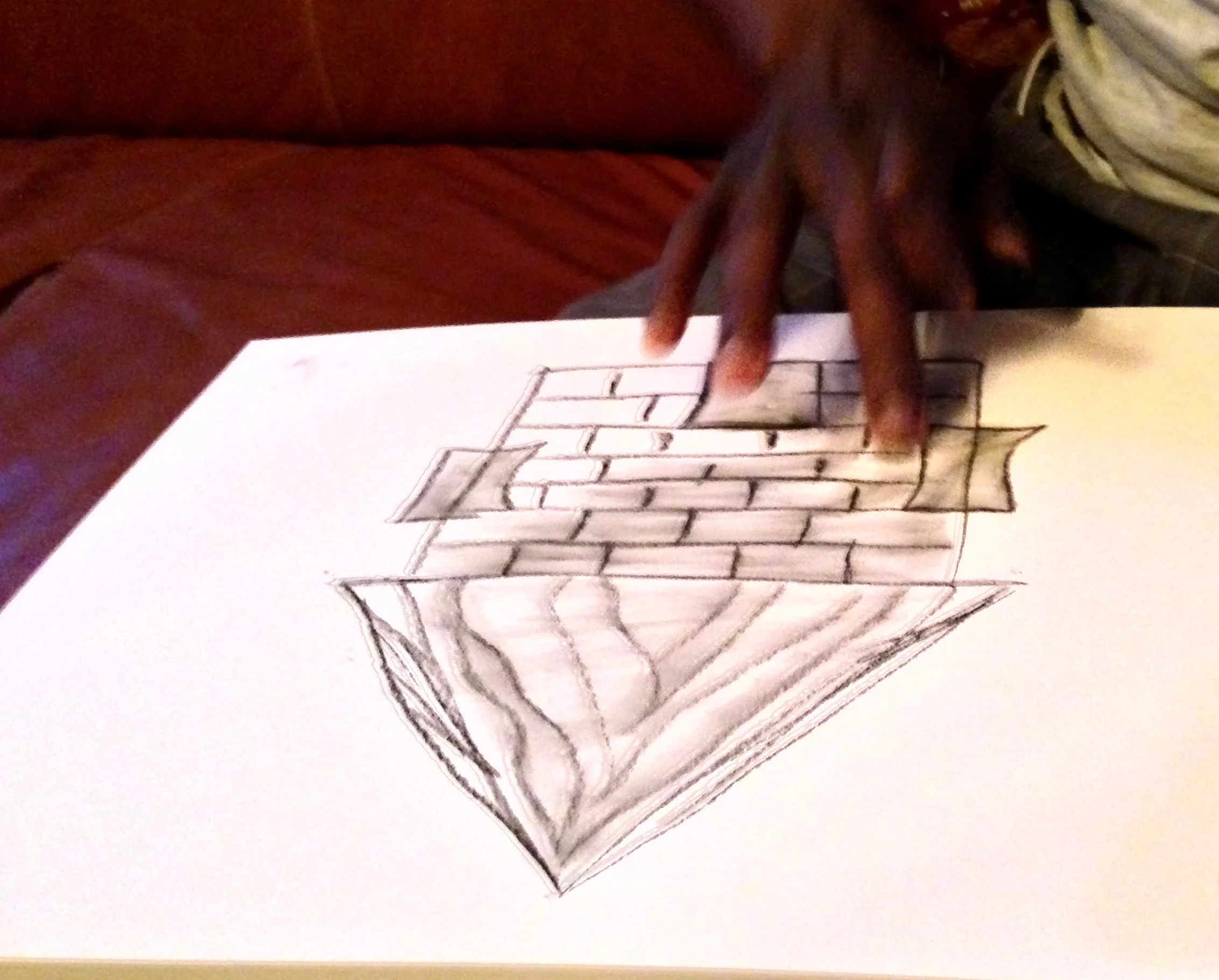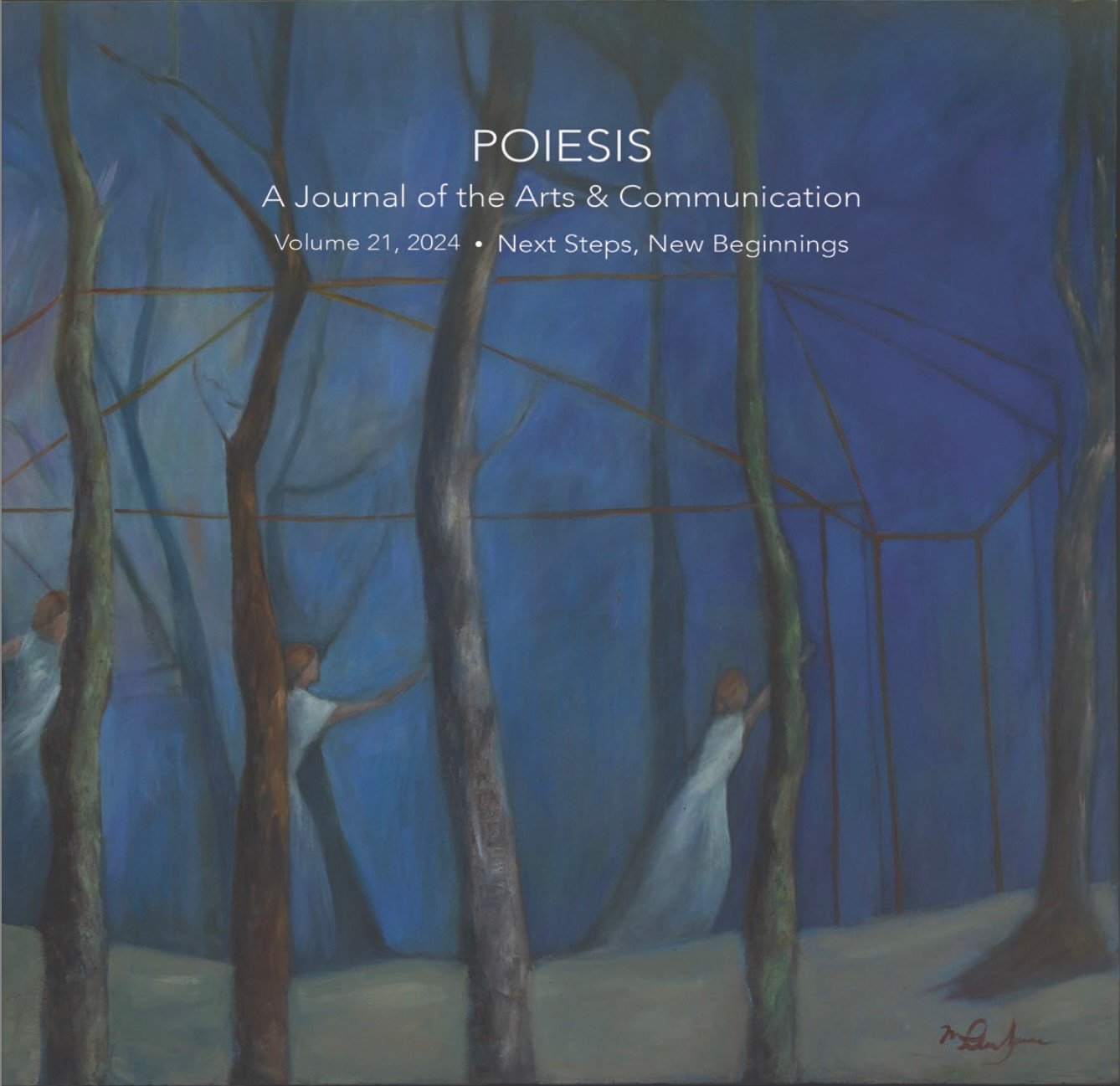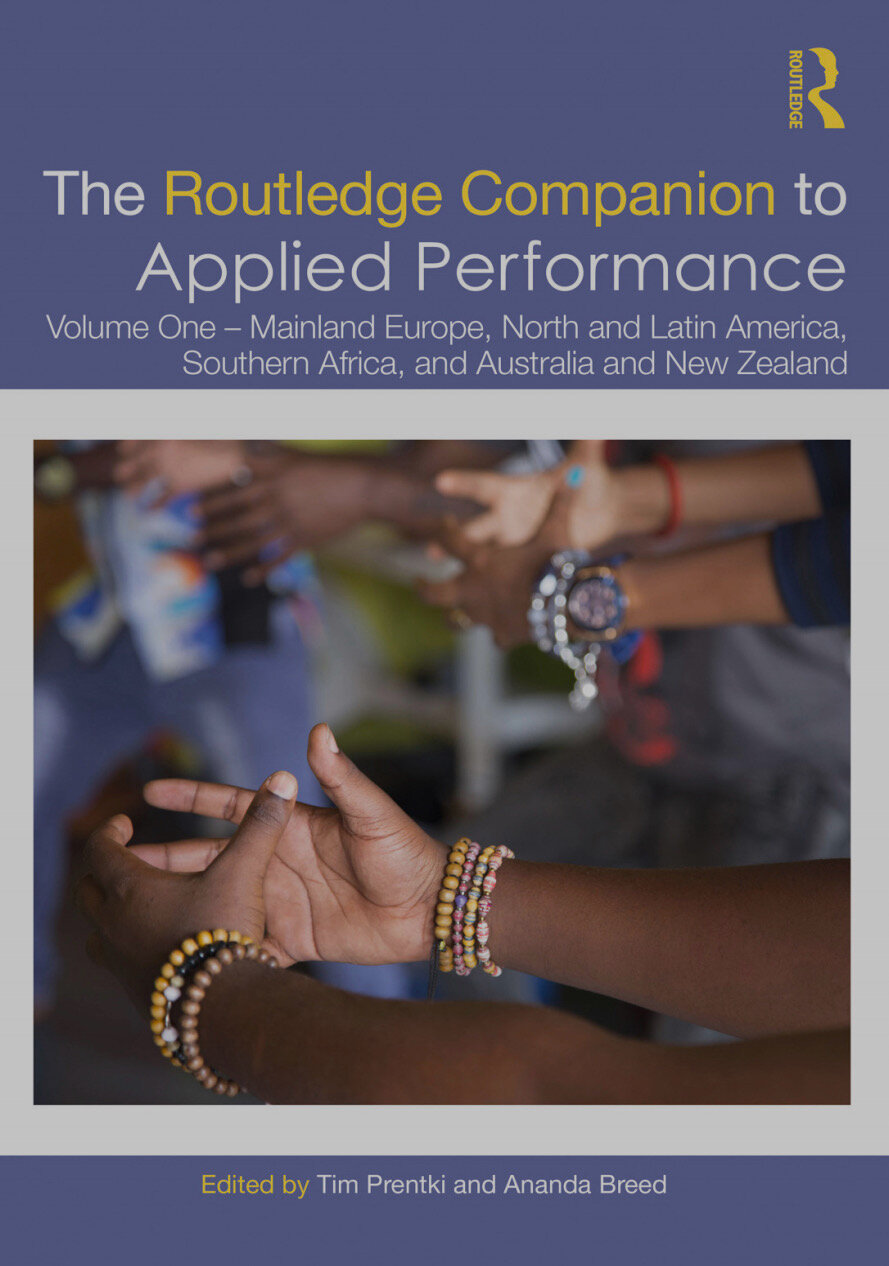Publications
The Light Walk: Walking Upstream to Re-Source
A Duet By Carrie MacLeod and ISABELLE ROCH
Poeisis, A Journal of the Arts and Communication.
The European Graduate School Press, Volume 21, 2024.
PerForming Home: AN InTERVIEW with CARRIE MACLEOD
BY STEPHEN K. LeVINE
Poeisis, A Journal of the Arts and Communication.
The European Graduate School Press, Volume 19, 2022.
VOICE (mis)RECOGNITIon: A PANDEMIC DECENTERING PRAXIS
Poeisis, A Journal of the Arts and Communication.
The European Graduate School Press, Volume 18, 2021.
TimeLy HOMECOMINGS
The Routledge Companion to Applied Performance - Volume One Mainland Europe,
North and Latin America, Southern Africa, Australia and New Zealand.
Eds. Tim Prentki and Ananda Breed, Routledge, 2021.
AFFECTIVE VITAL SIGNS
EUROPEAN GRADUATE SCHOOL 25TH ANNIVERSARY
Reconciliation, Celebration, Resilience
Poeisis, A Journal of the Arts and Communication.
The European Graduate School Press, Volume 17, 2020.
FroM BORDERS TO BRIDGES:
CREATIVITY-BASED IMMIGRATION CURRICULUM
By Lynn Ditchfield, Writer, Compiler, Editor/Researcher:
https://fiesta-immigrationfocus.com
Contributor: Shape-Shifting Home - Working with Clay, Resounding Neighbourhoods - Creating a Sound Score
THE PULSE OF HUMANITY
and
PER-FORMING HOME: SPINNING NEW SCRIPTS FOR RE-SEARCH
THE PLAY OF POIESIS: EXPRESSIVE ARTS IN THERAPY, EDUCATION, RESEARCH AND SOCIAL AND ECOLOGICAL CHANGE. Eds. Ellen G. Levine and Stephen K. Levine. Jessica Kingsley Publishers, 2017.
This edited collection reflects on the theory and application of expressive arts in therapy, education, research and social and ecological change. Bringing the understanding of expressive arts into its contemporary theoretical framework, the book reveals the expansion of the field from its initial focus on therapy alone into a diverse range of other areas. It also contains a selection of discursive writing, poetry and visual art, highlighting the importance of keeping artistic creativity at the heart of the field.
ENACTING RESILIENCE TOOLKIT: ARTS BASED ACTIVITIES
Carrie MacLeod, Ashli Akins and Michelle LeBaron, 2016.
The arts-based methods in this manual are designed to:
familiarize participants with tools for responsive community leadership
provide frameworks for surfacing cultural signs and symbols
offer new ways to experience and articulate interdependence and interconnectedness with others and the environment
encourage fluidity and flexibility by inviting somatic, imaginative, and emotional intelligences into conflict prevention across cultural divides
highlight rituals, metaphors and images that hold significant meanings within and between communities and cultural groups
introduce opportunities to create beauty and coherence in the midst of shifting dynamics or insecurity
contribute to understandings of how identity, core beliefs and belonging are key elements of resilience.
This toolkit was created as part of a series of workshops in the Enacting Resilience Project from 2013-2016. This project was supported by Public Safety Canada and the Peter A. Allard School of Law at the University of British Columbia.
COMPOSING A HOME AWAY FROM HOME
EUROPEAN GRADUATE SCHOOL 20TH ANNIVERSARY - AESTHETIC AND CRITICAL EDUCATION. Poeisis, A Journal of the Arts and Communication. The European Graduate School Press, 2015.
A Special Publication in Honour of 20 Years of Teaching at The European Graduate School - With Essays and Testimonials by EGS Faculty from the Division of Arts, Health & Society and the Division of Philosophy, Art & Critical Thought. What does it mean to teach and to learn? How can education be an aesthetic experience? What is distinctive about the style of learning at The European Graduate School?
The Choreography of Resolution: Conflict, Movement and Neuroscience
American Bar Association, 2013. Eds. Michelle LeBaron, Carrie MacLeod and Andrew Floyer Acland.
The Choreography of Resolution will revolutionize how mediators handle conflict resolution. Learning how neuroscience is proving what dancers have known for centuries, this book explores the links between the physical, mental, and psychological factors that affect conflict. Examining the autobiographical and practice experiences with diverse cultural, historical and social realities highlights both challenges and breakthroughs in this burgeoning area. Comprehensive in review, this ground-breaking book investigates the role of movement in conflict dynamics, exposes the limitations of omitting the body from the understandings of conflict, explores the ethical dimensions of embodied approaches, and proposes key strategies for conflict intervention.
Per-forming home: Spinning new scripts for re-search
RESEARCHING ART - THE ART OF RESEARCHING. Poeisis, A Journal of the Arts and Communication. The European Graduate School Press, 2013.
It is said that poiesis is a way of knowing. What do we really mean by that? Is the kind of knowing that happens in the arts different than the kind that happens in scientific inquiry? Are we expecting too much of the arts when we ask them not only to move us but also to teach us something new? And what about the proper way to know art itself? Should we use art to know art – or do we need to step outside of poiesis and go to theoria to understand art as it should be understood?
These and other questions are especially relevant when, on the one hand, there is a greater and greater demand for “evidence-based research” (even when it’s not clear what “evidence” means) and, on the other hand, “art-based research” becomes the slogan for a variety of approaches to research that employ the arts in one way or another. We live in a time when boundaries are crossed and sometimes crossed out – do we lose something when we plant ourselves firmly in the territory of both art and science? Is poiesis enough? Or do we need to supplement poietic knowing with “theory”? This issue of the POIESIS journal features contributions using art asresearch, thinking about art as research, and thinking and showing how art itself is to be known. Articles, poems and images from both the fields of the expressive arts and of media and communication all deepen our understanding of the art of research.
the choreography of absence: (in)habiting the imagination after war
ART IN ACTION: EXPRESSIVE ARTS THERAPY AND SOCIAL CHANGE. Eds. Ellen G. Levine and Stephen K. Levine. Jessica Kingsley Publishers, 2011.
The field of expressive arts is closely tied to the work of therapeutic change. As well as being beneficial for the individual or small group, expressive arts therapy has the potential for a much wider impact, to inspire social action and bring about social change. The book's contributors explore the transformative power of the arts therapies in areas stricken by conflict, political unrest, poverty or natural disaster and discuss how and why expressive arts works. They look at the ways it can be used to engage community consciousness and improve social conditions whilst taking into account the issues that arise within different contexts and populations. Leading expressive arts therapy practitioners give inspiring accounts of their work, from using poetry as a tool in trauma intervention with Iraqi survivors of war and torture, to setting up storytelling workshops to aid the integration of Ethiopian Jewish immigrants in Israel. Offering visionary perspectives on the role of the arts in inspiring change at the community or social level, this is essential reading for students and practitioners of creative and expressive arts therapies, as well as psychotherapists, counselors, artists and others working to effect social change.
INVITING PERSEPHONE TO DANCE: ARTS AND MOVEMENT-BASED APPROACHES TO PEACEBUILDING
PEACEMAKING: FROM PRACTICE TO THEORY. VOL. 1.
Michelle LeBaron and Carrie MacLeod
Eds. Susan Allen Nan, Zachariah Cherian Mampilly, and Andrea Bartoli. ABC-CLIO, 2011.
In a world where conflict is never ending, this thoughtful compilation fosters a new appreciation of the art of peacemaking as it is understood and practiced in a variety of contemporary settings. Whenever we seek to understand others, build healthy relationships, soothe discord, right wrongs, or nurture respect, we are making peace. Whatever the situation, peacemaking is about learning—learning the other; learning the issue; learning the future; learning to co-create a new, shared reality. The more we know about how peace is made, the better equipped we are to help peace prevail. Peacemaking: From Practice to Theory is about seeing, knowing, and learning peacemaking as it exists in the real world. Built on the premise that peacemaking is among the most elemental of human experiences, this seminal work emphasizes the importance of practice and lived experiences in understanding the process and learning what works to nurture peace.
BELONGING TO DANGEROUS INTERSECTIONS: THE CONVERGENCE OF EXPRESSIVE ARTS THEORY AND SOCIAL CHANGE
IN PRAISE OF POIESIS: THE ARTS AND HUMAN EXISTENCE. Eds. Ellen G. Levine and Paul Antze. The European Graduate School Press, 2009.
This collection of writings, poems and visual images honours the thinking and the work of Stephen K. Levine, philosopher of the field of expressive arts therapy. Levine’s work in this field over the past 25 years has focused on the central role of art and art-making in human experience, calling attention to the uniquely human act of shaping and its embodiment in artistic activity. Levine places the concept of poiesis at the center of his thinking and, by doing so, provides an important guidepost for practitioners of therapy, education and social change work through the arts. His ideas have influenced a whole generation of teachers and practitioners of expressive arts therapy and this volume is a testament to that influence.
THE PULSE OF HUMANITY
Poiesis: A Journal of the Arts and Communication. The European Graduate School Press, 2006.
For beauty is nothing but the beginning of terror, which we are still just able to endure, and we are so awed because it serenely disdains to annihilate us. -Rilke
As Rilke’s quote suggests, this beautiful new issue of the journal contains an extensive feature section on beauty and terror. This section also honours Shaun McNiff, one of the founders of the field of expressive arts therapy, on the event of his 60th birthday. POIESIS VIII spans geographic distance as well as time periods, exploring the art and nature of expression in places as far-reaching as Sierra Leone, Iraq, Jerusalem, Texas, and rural Canada, and from the Deep South of the 1800s to the Woodstock era to present times. Artwork appears in full colour.
PEer Reviewer
Art/Research International: A Transdisciplinary Journal
Engaged Scholar Journal: Community Engaged Research, Teaching, and Learning








